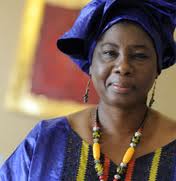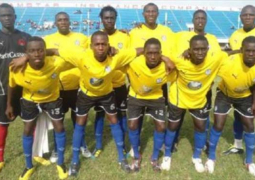
The executive director of Gamcotrap, Isatou Touray, is one of 70 women and men from more than 55 grassroots and global organisations working at ending early child marriage around the world, who were invited to a strategic planning meeting on early marriage held in Addis Ababa, Ethiopia, on 7 and 8 June this year.
The Elders initiated the formation of a civil society ‘Alliance to end child marriage’ around the world, especially in developing countries like Africa’s. Some of the elders in attendance at the Addis Ababa meeting were Dr Gro Brundtland, Mrs Graça Machel, Mrs Mary Robinson and Archbishop Desmond Tutu.
Child marriage is a fundamental breach of human rights and affects an estimated 10 million girls per year. It curtails their education, endangers their health and impedes efforts to fight poverty. It hinders the achievement of six of the eight Millennium Development Goals. It is a harmful traditional practice that affects millions of children, predominantly girls, in many countries and across religions. There is no religion that endorses or promotes child marriage.
Programme implementers, experts and advocates from 23 countries brought to the meeting a wealth of expertise and experience on the issue of child marriage.
It was recognised that delaying marriage, investing in girls’ education and their development can bring significant benefits to girls, their families and their communities.
Chair of The Elders, Archbishop Tutu, described the scale of the problem of child marriage as devastating and said he was “shattered” to meet Ethiopian women and girls who had married as young as 8 or 10.
“You can understand something cerebrally,” he said, “but it is not the same when it is translated into flesh and blood.” Archbishop Tutu spoke positively about his conversations with Orthodox Christian and Islamic representatives in Ethiopia who have spoken publicly against child marriage.
Graça Machel, an international advocate for children’s and women’s rights, was passionate about the importance of giving a voice to the millions of girls who are “a silent part of our society”. She addressed the issue of tradition, arguing that, as traditions are made by people, they can be changed. “We must be respectful,” she said, “but we must also have the courage to say that change is necessary in relation to harmful traditional practices.”
Former Prime Minister of Norway and a doctor by profession, Dr Gro Brundtland, described child marriage as a hidden, yet central issue in reaching fundamental development objectives such as health and education. She said child marriage deserves far more attention than it currently receives.
Former President of Ireland and former UN High Commissioner for Human Rights, Mary Robinson, highlighted the importance of empowering girls.
She encouraged the Alliance to work towards ensuring that girls are not married before the age of 18, in line with the UN Convention on the Rights of the Child.
Case studies were also presented by representatives of organisations working at ending child marriage and effective interventions were shared including issues of gender equality, leading to the abolition of harmful practices and the empowerment of girls and women.
Improved services, especially education and incentives to keep girls in school as well as programmes to support married girls, and establishment and implementation of legal frameworks that reflect international conventions and human rights standards were highlighted.
Participants emphasised the need for a holistic, multi-faceted, rights-based approach to ending child marriage. Recognising that ending child marriage requires discussions within communities, leading to a collective agreement to end the practice, they stressed that global and national efforts should ultimately support local change. They also called for efforts to be complementary and interlinked.
Encouragingly, participants feel that change is already taking place, and that an Alliance will help to accelerate that process. Scaling up would enable a far larger number of communities to better fulfil the potential of their children, especially their girls.
Panellists discussed successful collaborative efforts involving government, international agencies, civil society and local communities to address child marriage.
The strategic planning reflects on the institutional framework for the Alliance, as well as organisational practicalities, with its message on the issue of child marriage.
It also allows for the sharing of information on best practices, with an emphasis on local-level change with global support.
The Alliance will draw attention to the need for more information on the magnitude of child marriage, as well as programmatic initiatives that have helped to prevent or end it.
By raising awareness the Alliance also aims to mobilize political will and financial and other resources to address child marriage and provide support for married girls.


